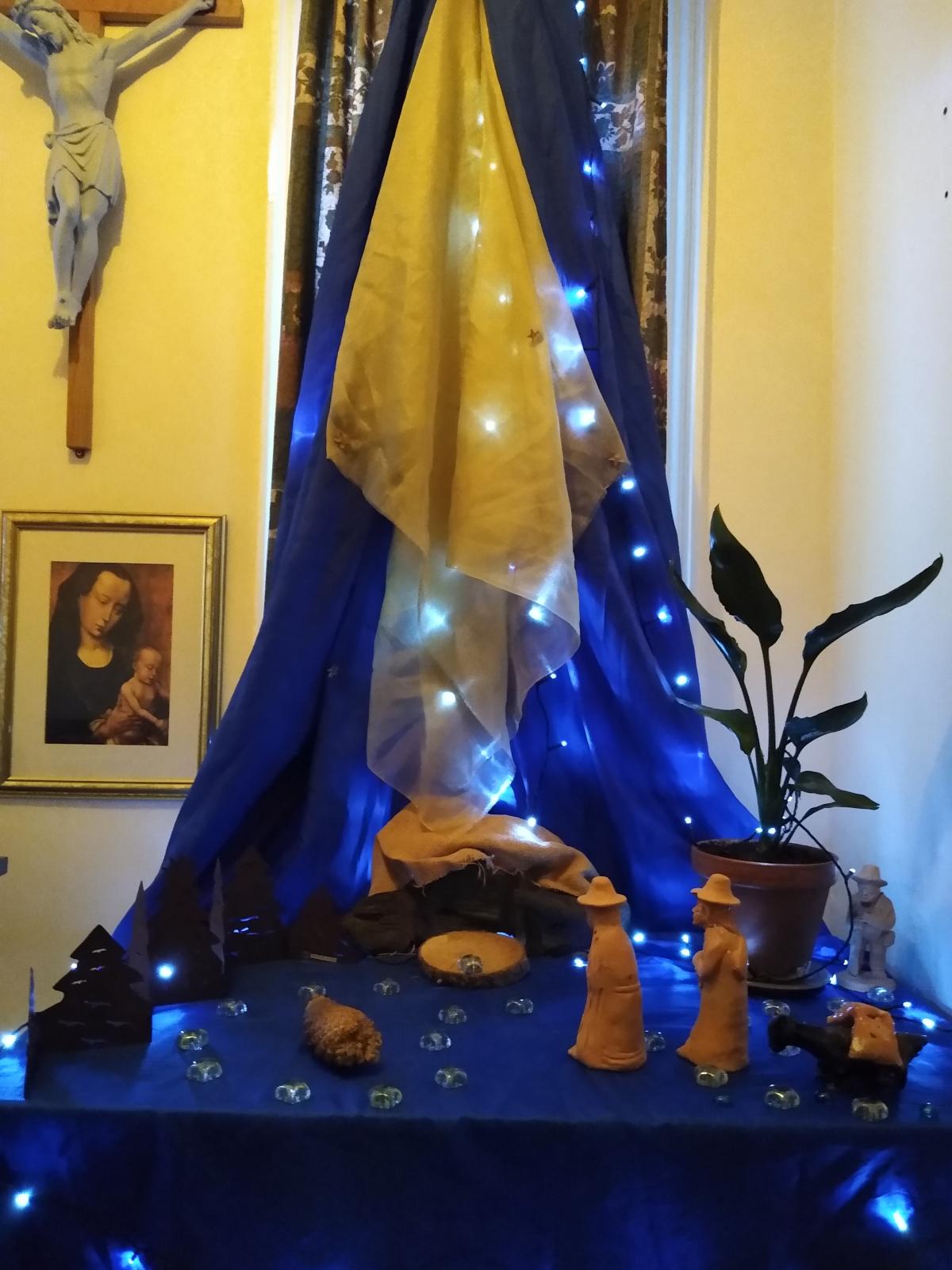By Deacon Roger Carr-Jones, Marriage & Family Life Coordinator for the Diocese of Westminster
The concept of the journey is a powerful one in scripture, speaking of movement and direction. In life, we too are on a journey into faith, one that begins with the decision to set off, knowing our destination. There is a difference between a journey and a simple amble. On a journey we discover a new world and unexpected things. As pilgrims we can feel inadequate, or ill-prepared, to embark on the journey of faith, overlooking the fact that we will not tread the path alone. Not only is God’s Spirit close-by, we also benefit from receiving the gift of our fellow-travellers’ insights.
Journeys involve times of movement, stillness and reorientation, as we adjust our steps to the prompting of the Spirit. Each year as we set-off on the journey to Bethlehem it may stir up a variety of emotions the closer we get to the point of embarkation: anticipation, fear, uncertainty and excitement, to name but a few. Once we set out into an ‘unknown world’ we will meet new people and usually return wiser for the experience and our ‘known world’ changes.
Ignatian spirituality provides the pilgrim with the gift of imaginative contemplation, which means that we can accompany Jesus on Mission in our hearts and minds, as well as our feet. Journeys of the imagination in prayer are as powerful if not more so than many physical ones. When we prepare for a journey, often the focus is on ourselves and our immediate needs. As we set out on the Way, we need to broaden our horizons, to become aware of the wider landscape.
What better journey at this time of the year than to accompany the Holy Family as they set off from their known world of Nazareth to travel 90 miles across unfamiliar terrain to Bethlehem for the census? Our purpose in joining that journey is not to develop our biographical facts, but a knowledge akin to one of friendship. As the writer CS Lewis said, 'Some journeys take us far from home. Some adventures lead us to our destiny' (The Chronicles of Narnia: The Lion, the Witch and the Wardrobe).
The journey of Mary and Joseph began with their individual Annunciations: the ‘yes’ of Mary to the angel Gabriel and that of Joseph to the message in his dream, with neither suspecting what that might entail. They placed their trust in the certainty that the Trinity would be their guide. The Annunciation to Mary is the dramatic entry of the Divine into our everyday world, where God meets a young woman in a small town. 'The Annunciation perfectly describes the growth of a personal relationship with God… And in doing so the story offers us something like a multi-faceted jewel: a microcosm of the spiritual life' (James Martin SJ). Mary’s journey begins with a conversation with God. Their ‘Yes’ will lead Mary and Joseph into a new terrain, where the features and boundaries are changed.
The gospel account of their arrival in Bethlehem hints that the journey they undertook was far from easy or plain sailing. This is a useful reminder that, whilst God sets the course of direction, the journey is real. How would you feel to be Mary, nine months pregnant, close to giving birth and finding that you must journey to a place you do not know, to a welcome that is far from certain? Again, what about Joseph, preparing for the journey? Was he familiar with the route and if so, how did he feel about making the trip with Mary, heavy with child?
The hardest part of any journey, apart from the preparation, is to step across the threshold and set off. We have to leave behind the comfort and security of home, and the world then lies open ahead. There is a Spanish saying, ‘little by little, one goes a long way’, which seems apt for an Ignatian based adventure. Often, we get overly focused on the destination, which means that we can miss the important signs on the journey. On our spiritual journey, the importance of noticing is essential. Advent is a journey towards Bethlehem. On it we need to take note of our landscape and the happenings in our world. We bring these realities to the journey of the Holy Family.
Luke’s nativity account focuses on the destination, the journey itself being a means to an end. Yet without the journey there is no destination. For us, like Ignatius, it is primarily on our pilgrim journey that we discover just how God provides and protects us, challenges us and draws us on. As Pope Francis said, 'Faith is not a light which scatters all our darkness, but a lamp which guides our steps in the night and suffices for the journey' (I Believe: The Promise of the Creed, p 114, Orbis Books).
All that we need for the journey will be given to us. Be aware of how Mary trusts God and the ways in which Joseph is attentive to God. The Holy Family are inviting us to tread on the path with them, to experience the journey to Bethlehem and resting by the fire to chat.
Notice how Joseph supports Mary, who looks tired and weary. The road that seems endless. Joseph is looking intently at his beloved. How does he feel?
Where will your footsteps take you and what might be asked of you on this journey? What might Mary and Joseph have discovered about themselves and each other?
